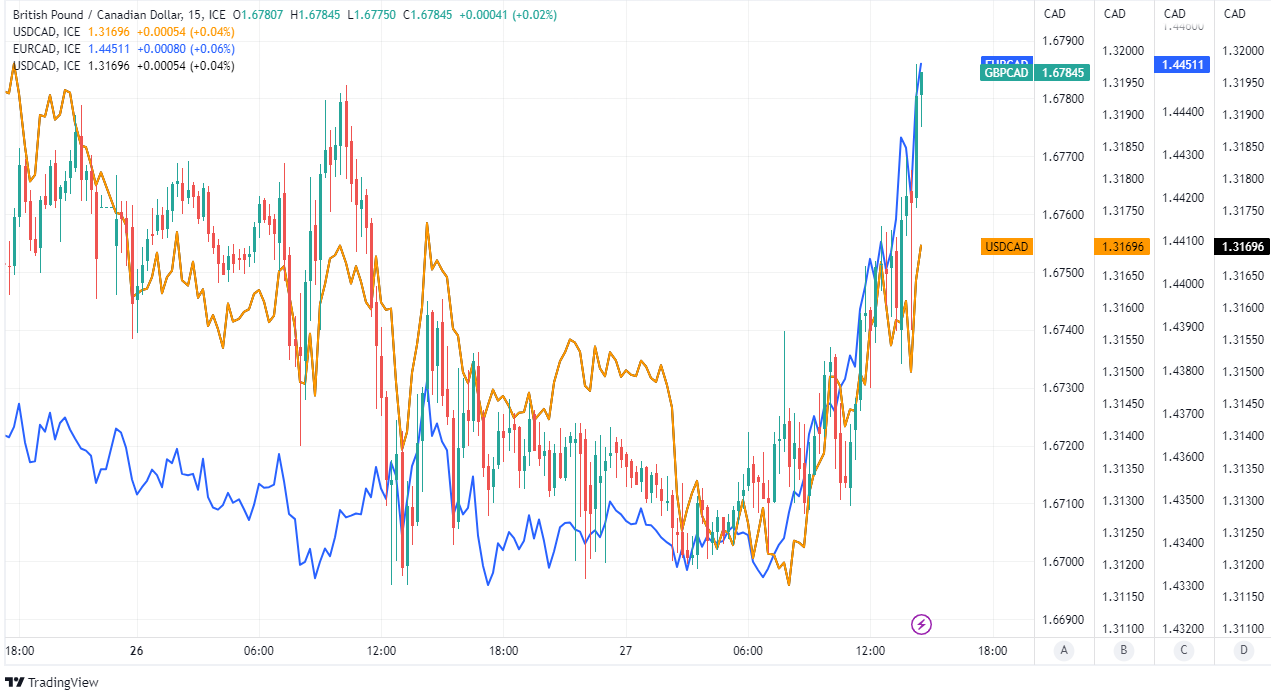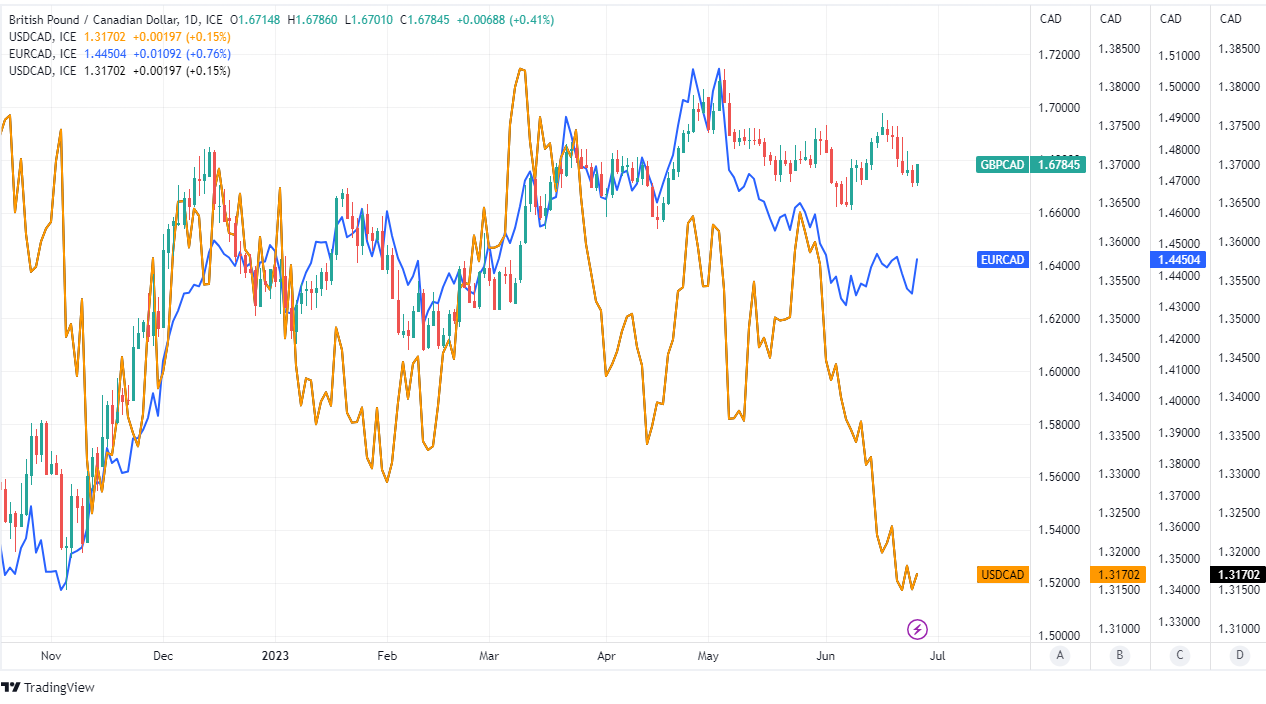Canadian Dollar Slips after Inflation Casts Doubt Over Market's BoC Assumptions

Image © Adobe Stock
The Canadian Dollar fell against major counterparts after all bar one of the most important measurements of inflation fell further than was expected by economists for the recent month, though some local economists say there is uncertainty over whether the declines will be enough for the Bank of Canada (BoC).
Canadian Dollars were sold for U.S. Dollars, Pounds and other currencies while local bond yields fell after Statistics Canada said statistical base effects relating to energy prices helped push the annual inflation rate down from 4.4% to 3.4% last month, in line with economist forecasts.
But it wasn't just energy weighing on inflation as the core rate fell from 4.1% to 3.7% when the consensus among economists was that it would come in around 3.9% with the difference being partly accounted for by declines in prices of furniture, passenger vehicles and cellular phone charges.
All three of the Bank of Canada measures of core inflation - the trimmed mean, median and common indices - also fell further than was projected by the economist consensus.
"The easing of some core price pressures saw bond yields fall and the Canadian dollar depreciate, as odds of a further 25bp hike in July eased back close to a 50/50 call," says Andrew Grantham, an economist at CIBC Capital Markets. "The tamer core readings suggest that policymakers may be able to wait a little longer rather than following up June's hike with another move as early as July."
Above: GBP/CAD shown at 15-minute intervals alongside USD/CAD and EUR/CAD.
Meanwhile, Statistics Canada said the mortgage cost index was the largest contributor to inflation after rising 29.9% over the year to the end of May, suggesting inflation would be lower today and might have fallen even further in recent months were it not for earlier increases in the Bank of Canada cash rate.
The BoC raised its cash rate from 4.5% to 4.75% in June following a spate of stronger-than-expected economic figures including an uptick in inflation back in April.
The summary of Governing Council deliberations from June confirmed last week that future decisions would depend on the data arriving in the interim while Tuesday's numbers might be suggestive of a weakening case for further increases in the cash rate from here: Financial markets have recently bet on just more than one additional increase.
But grocery prices were still rising at more than twice the rate of overall inflation in May and Statistics Canada cautioned against overinterpreting declines in the annual inflation rates due to statistical base effects pulling them lower in a mechanical way as the large price increases of last year drop out of the comparison period.
"Price increases observed in the first half of 2022 will continue to fall out of the 12-month price movement. While inflation has slowed in recent months, prices remain elevated. Users should consider the impact of base-year effects when interpreting the 12-month price movement," Statistics Canada cautioned on Tuesday.
Above: GBP/CAD shown at daily intervals alongside USD/CAD and EUR/CAD.


